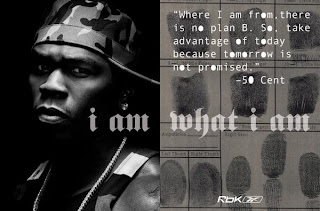Regulation
Regulation
1) Regulation is a rule or directive made and maintained by an authority. Print media are largely unregulated, and newspapers and magazines can print nearly anything as long as they don’t slander anyone but are still regulated by Independent Press Standards Organisation. The Internet has also gone largely unregulated, despite congressional efforts to restrict some controversial content. Broadcast media, however, are subject to the most government regulation such as OFCOM. Radio and television broadcasters must obtain a license from the government. Advertisements are regulated by the Advertising Standards Authority.
2) The responsibility of OFCOM is for regulating television, radio, telephone services and some aspects of the internet although the areas most relevant to media students are TV and radio.
3) Privacy is a important section as it does not infringe on the privacy of the viewer that is using the TV or Radio station. Fairness and Commercial References in Television Programming as Fairness makes it more just and unbiased for the consumer and Commercial References in Television Programming allows companies to profit from using TV or Radio stations which makes them less likely to pull their channels or stations from whatever device they were broadcasting from before.
4) OFCOM were wrong to broadcast Wolverine at 6.55 pm as the movie contains numerous violent scenes which can effect the young audiences that view TV at this time. Also, Channel 4 broadcast child-friendly shows at that time slot leading the viewer to assume the movie that is going to be broadcast would also be a child-friendly.
5) Section 1: Accuracy
Section 2: Opportunity to Reply
Section 3: Privacy
Section 4: Harassment
Section 5: Intrusion Into Grief and Shock
6) In recent years, the PCC became the focus of a great deal of controversy. It’s critics claim that the lack of statutory powers means that when a newspaper has been found to breach the rules.
7) Victims of press intrusion also gave evidence, including Hugh Grant and Charlotte Church who gave details about how they felt the press had been able to intrude on their personal lives to an unacceptable extent. At the end of the enquiry, it was recommended that the PCC be
replaced with a new body with more power to bring the press into line.
8) On 8th September 2014, the PCC was replaced by the Independent Press Standards Organisation (IPSO). This new body (like the PCC) has been set up by the newspaper industry itself and it’s code of practice is essentially the same as the code administered by the PCC. This has led to criticism that the new body is effectively the PCC under a different name.
9) Free press is important as it allows people to express their opinions, this should matter to TV and Radio stations to prevent ideas and opinions becoming too biased but also shouldn't say things that are offensive or unneeded.
10) The internet is difficult to regulate due to the fact they it is used by so many people across the world making it hard to limit what's being said, seen or heard. Also, people have a right to express and say things that they want to see but recently it's becoming easier to regulate things like with the help of things such as network providers or report buttons.
3) Privacy is a important section as it does not infringe on the privacy of the viewer that is using the TV or Radio station. Fairness and Commercial References in Television Programming as Fairness makes it more just and unbiased for the consumer and Commercial References in Television Programming allows companies to profit from using TV or Radio stations which makes them less likely to pull their channels or stations from whatever device they were broadcasting from before.
4) OFCOM were wrong to broadcast Wolverine at 6.55 pm as the movie contains numerous violent scenes which can effect the young audiences that view TV at this time. Also, Channel 4 broadcast child-friendly shows at that time slot leading the viewer to assume the movie that is going to be broadcast would also be a child-friendly.
5) Section 1: Accuracy
Section 2: Opportunity to Reply
Section 3: Privacy
Section 4: Harassment
Section 5: Intrusion Into Grief and Shock
6) In recent years, the PCC became the focus of a great deal of controversy. It’s critics claim that the lack of statutory powers means that when a newspaper has been found to breach the rules.
7) Victims of press intrusion also gave evidence, including Hugh Grant and Charlotte Church who gave details about how they felt the press had been able to intrude on their personal lives to an unacceptable extent. At the end of the enquiry, it was recommended that the PCC be
replaced with a new body with more power to bring the press into line.
8) On 8th September 2014, the PCC was replaced by the Independent Press Standards Organisation (IPSO). This new body (like the PCC) has been set up by the newspaper industry itself and it’s code of practice is essentially the same as the code administered by the PCC. This has led to criticism that the new body is effectively the PCC under a different name.
9) Free press is important as it allows people to express their opinions, this should matter to TV and Radio stations to prevent ideas and opinions becoming too biased but also shouldn't say things that are offensive or unneeded.
10) The internet is difficult to regulate due to the fact they it is used by so many people across the world making it hard to limit what's being said, seen or heard. Also, people have a right to express and say things that they want to see but recently it's becoming easier to regulate things like with the help of things such as network providers or report buttons.

Comments
Post a Comment